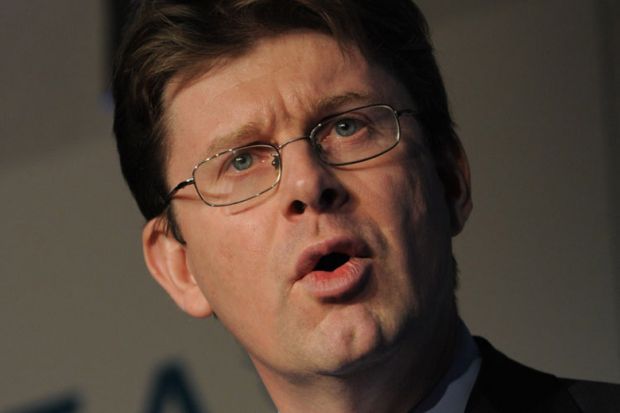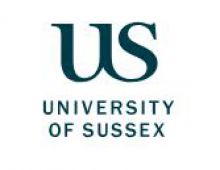Concerns have been raised over yesterday’s departmental reorganisation that will split up responsibility for universities and research, while Theresa May’s focus on an “industrial strategy” for the UK could also have implications for universities and academics.
Research will be overseen by the new Department for Business, Energy and Industrial Strategy (BEIS), while the Department for Education will take on responsibility for higher education.
Universities UK has called for more clarity over how the two will fit together, while Paul Nightingale, professor of strategy at the University of Sussex’s Science Policy Research Unit, said that the separation was “going to cause some problems”.
“High-quality teaching is informed by research,” he said, and added that students could not be taught their subject matter “dead from a textbook”.
“Professors aren’t teachers; they need to be in that system of knowledge production,” he argued.
Kieron Flanagan, senior lecturer in science and technology policy at the University of Manchester, said that universities would now have to “address multiple ministers and multiple departments”.
However, had research been part of the Department for Education, this could have pushed it down the list of priorities for the new secretary of state, Justine Greening, who will be more preoccupied with schools, he said. “Research requires constant advocacy,” he added.
The government is pressing ahead with legislation that will in any case split funding for teaching and research distributed by the Higher Education Funding Council for England (Hefce) between two newly created bodies – the Office for Students and UK Research and Innovation (UKRI) – the second of which will consolidate the research councils.
But until the new bodies are finalised, Hefce is expected to continue to distribute both research and teaching funding, leaving open the possibility that it will be funded by both BEIS and the Department for Education at the same time.
“It seems like a mess,” said Professor Flanagan. “Who does the chief executive of Hefce answer to?”
Another question for universities is what the new administration’s emphasis on “industrial strategy” will mean for research. In a speech made in Birmingham on Monday before she became prime minister, Theresa May said that she wanted a “proper industrial strategy to get the whole economy firing”.
This appears to mark a decisive shift away from the traditional Conservative aversion to “picking winners” in terms of research.
However, the former universities minister Lord Willetts flirted with an industrial strategy by another name during the last Parliament, announcing £600 million for the so-called “eight great technologies” – although at the time he denied this was “picking winners”.
The renaming of the current Department for Business, Innovation and Skills to include the phrase “industrial strategy” was the sign of a “quiet revolution” in policy in favour of linking research and economic development, said Professor Nightingale.
He said he believed that the new strategy would lead to a focus on the “local research needs” of the economy. Academics would be expected to be “much more engaged” with more “reaching out” to the local community, he continued.
The “one nation” Conservative approach, which Ms May appears to have seized, sees universities as “local institutions connected to global networks”, he added.
Professor Flanagan said that the government might take a more “activist” and “focused” role in promoting certain technologies, but doubted that it would make a great deal of difference to everyday research.
Sarah Main, director of the Campaign for Science and Engineering, said: “I would be very keen to hear something positive and visionary about the role research is going to [play in helping] this social justice agenda.”
Research could be key, she suggested, in answering questions such as: “How do you know your tax break is going to benefit the man on the street?”
But Professor Nightingale warned that the humanities could lose out if the new industrial strategy was too “instrumentalist”. The humanities had great economic value in addition to their social use, and there was now a “greater need than ever for public intellectuals”, he argued.
Meanwhile, the appointment of Greg Clark as secretary of state for BEIS meant that a science and innovation strategy released in December 2014 during his time as universities minister could be dusted off, suggested James Wilsdon, professor of research policy at the University of Sheffield.
At the time, it ignited a debate over whether research funding should be shared more evenly across the country – as opposed to its current concentration in the so-called golden triangle of Oxford, Cambridge and London – and Professor Wilsdon said that it was an “interesting question” as to whether a new industrial strategy could mean a broader geographic distribution of money.
There was broad relief over the appointment of Mr Clark, who, Professor Wilsdon said, “knows the research patch very well having done the job”.
One final question for researchers is whether the new administration will continue its commitment to spend 0.7 per cent of gross national income on overseas aid, a policy that is enshrined in law.
The new Global Challenges Research Fund, announced last year and worth £1.5 billion over this Parliament, will count towards the 0.7 per cent, so any change to this policy could throw the research budget into confusion.
Neither the BIS nor the Department for International Development confirmed to Times Higher Education that the target would definitely continue.
However, although the new international development secretary, Priti Patel, suggested in 2013 that her new department could be scrapped, her appointment statement said that the department would keep “the promises we’ve made to the world’s poorest people”.
Professor Nightingale said: “Given how embedded it [the 0.7 per cent target] is now in the future funding…for the research councils, it’s going to be difficult to unpick.”
But Professor Wilsdon pointed out that the target is pegged to the size of the UK economy – meaning that if the Brexit vote triggers a recession, this could have a knock-on effect for the research budget.
Since this article was published, it has been confirmed that Jo Johnson will remain universities and science minister, working across both the DfE and BEIS.
POSTSCRIPT:
Print headline: ‘It seems like a mess’: fears for research and questions over industrial strategy
Register to continue
Why register?
- Registration is free and only takes a moment
- Once registered, you can read 3 articles a month
- Sign up for our newsletter
Subscribe
Or subscribe for unlimited access to:
- Unlimited access to news, views, insights & reviews
- Digital editions
- Digital access to THE’s university and college rankings analysis
Already registered or a current subscriber? Login













